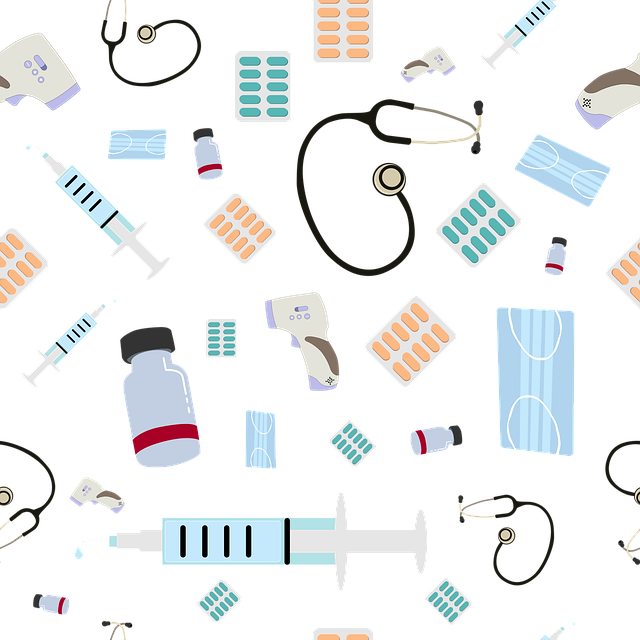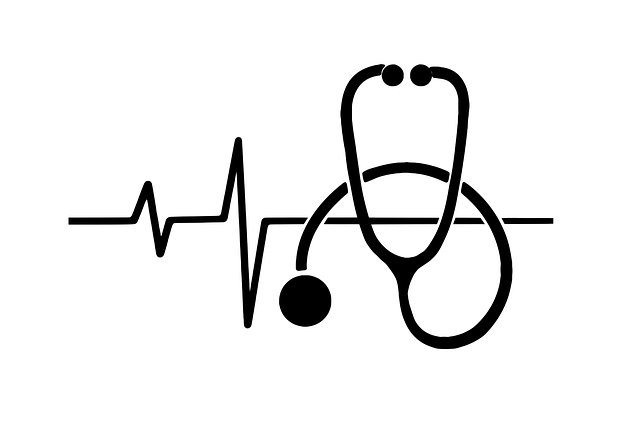Medicine Definition
The field we know that medicine is all about health care, psychologist, doctors and drugs. More of this, curious to list down the requirements of becoming a Doctor. How about […]


Drugs and Medicine are impressively quite different. Drugs will get control of your body and mind from you. Medicine is a reversal that can restore and control back to you. […]
Continue reading
The digestive organs of the human body are explained in detail and their functioning is described. The salivary glands, the esophagus, the stomach, the small intestine, the large intestine and […]
Continue reading
The field we know that medicine is all about health care, psychologist, doctors and drugs. More of this, curious to list down the requirements of becoming a Doctor. How about […]
Medicine Mondiale is a blogging website related to Health And Medicine.
Know MoreIn this video will explain how drugs flows to your body. The factor such as the speed of the tract, compositions, how the drugs will be consumed. How the drug […]

Maintaining a healthy weight is a goal shared by many individuals, and the market for dietary supplement products aimed at weight management is booming. From fat burners to appetite suppressants, the options seem endless. But amidst the plethora of products, understanding the role of dietary supplements in supporting healthy weight management is crucial for making informed decisions about one’s health journey.
Firstly, it’s important to acknowledge that dietary supplements are not magic bullets for weight loss. While some may offer benefits when combined with a balanced diet and regular exercise, they are not a substitute for healthy lifestyle habits. Instead, they should be viewed as tools to complement a comprehensive approach to weight management.
One category of dietary supplements often associated with weight loss is thermogenics. These supplements contain ingredients like caffeine, green tea extract, and capsaicin, which are believed to increase metabolism and promote fat burning. While studies suggest that these ingredients may have a modest effect on metabolic rate and energy expenditure, the results are often not dramatic. Moreover, individuals should be cautious of potential side effects such as jitteriness, insomnia, and increased heart rate.
Another popular type of weight loss supplement is appetite suppressants. These products typically contain fiber, protein, or other compounds that are intended to increase feelings of fullness and reduce food intake. While some research supports the effectiveness of certain appetite suppressants in short-term weight loss, the long-term sustainability and safety of these products remain uncertain. Additionally, relying solely on appetite suppressants without addressing underlying dietary and lifestyle factors may not lead to lasting results.
ALSO READ: Weight Loss Supplements: A Comprehensive Guide to Their Health Considerations
In contrast to thermogenics and appetite suppressants, some dietary supplements focus on supporting metabolic health and nutrient balance. For example, vitamins and minerals like vitamin D, magnesium, and chromium are involved in various metabolic processes that can influence weight regulation. While deficiencies in these nutrients may impair metabolic function, supplementation should be approached with caution, as excessive intake can have adverse effects.
Moreover, certain herbal supplements, such as Garcinia cambogia and forskolin, have been marketed for their purported weight loss benefits. However, the evidence supporting their effectiveness is often limited and conflicting. Furthermore, the quality and purity of herbal supplements can vary widely, making it challenging for consumers to assess their safety and efficacy.
Overall, the role of dietary supplements in supporting healthy weight management is complex and multifaceted. While some supplements may offer modest benefits when used as part of a comprehensive approach to weight loss, others may be ineffective or even harmful. Therefore, it’s essential for individuals to critically evaluate the evidence behind supplement claims, consult with healthcare professionals, and prioritize sustainable lifestyle changes.
Dietary supplements can play a role in supporting healthy weight management, but they are not a substitute for balanced nutrition, regular physical activity, and other lifestyle factors. By approaching supplements with skepticism and moderation, individuals can make informed choices that contribute to their overall well-being and weight goals.

In the quest for better health and wellness, individuals are presented with a plethora of options, each promising transformative results. Among these choices, slimming tonics and powder supplements stand out as popular solutions. While both aim to improve health and aid in weight management, they differ in their formulation, application, and approach. Let’s delve into the world of slimming tonics and weight loss powder supplements to understand their unique benefits and how they can complement each other in achieving overall well-being.
When considering whether slimming tonics or weight loss powder supplements are the right fit for your health goals, it’s essential to assess your individual needs and preferences. Here are some factors to consider:
While slimming tonics and weight loss powder supplements offer distinct approaches to health and wellness, they are not mutually exclusive. In fact, combining the two can yield synergistic benefits and enhance overall results. Here’s how:
READ ALSO: Weight Loss Supplements: A Comprehensive Guide to Their Health Considerations
In conclusion, the landscape of health solutions offers a myriad of choices, including slimming tonics and weight loss powder supplements, each with its own set of benefits and applications. By understanding their unique features and embracing their synergistic potential, individuals can navigate their health journey with confidence, achieving sustainable results and optimal well-being.

The groundbreaking advancements continue to redefine the way we approach cardiac care in the ever-evolving landscape of modern cardiology,. One such technological marvel that stands at the forefront of this revolution is Biomed Scanning. In this article, we delve deep into the impact of Biomed Scanning (source: Biomed Scan Cardiologie) on cardiac care, exploring its applications, benefits, and the paradigm shift it brings to the field.
Biomed Scanning is not merely a diagnostic tool; it is a game-changer in the realm of cardiology. Unlike traditional imaging methods, such as X-rays or CT scans, Biomed Scanning harnesses the power of biomedical technology to provide a comprehensive and detailed analysis of the cardiovascular system. It goes beyond surface-level examinations, offering insights into the intricate dynamics of the heart and its surrounding structures.
One of the key strengths of Biomed Scanning lies in its ability to offer precise diagnostics. The technology provides a 3D visualization of the heart, allowing healthcare professionals to identify anomalies with unparalleled accuracy. From detecting structural abnormalities to assessing blood flow dynamics, this level of precision is a game-changer in early diagnosis and targeted treatment planning.
In the era of personalized medicine, Biomed Scanning takes center stage by tailoring treatment plans to individual patient profiles. By understanding the unique intricacies of a patient’s cardiac structure and function, healthcare providers can craft interventions that optimize efficacy while minimizing risks and side effects.
The integration of Biomed Scanning into modern cardiology practices has demonstrated a significant positive impact on patient outcomes. Swift and accurate diagnoses translate into timely interventions, leading to improved prognosis and quality of life for cardiac patients.
Unlike conventional imaging techniques that may involve substantial radiation exposure, Biomed Scanning prioritizes patient safety. With minimal radiation, it becomes a safer alternative, especially for individuals requiring frequent cardiac evaluations.
Gone are the days of invasive procedures for comprehensive cardiac assessments. Biomed Scanning offers a non-invasive approach, reducing patient discomfort and minimizing the risk of complications associated with invasive diagnostic methods.
Traditional imaging methods often face challenges in capturing detailed images, especially in patients with certain body compositions. Biomed Scanning, however, transcends these limitations, providing clear and detailed visuals even in challenging cases.
Early detection of cardiac issues is pivotal in preventing severe complications. Biomed Scanning excels in this aspect, enabling healthcare professionals to identify subtle abnormalities at an early stage, fostering proactive intervention and improved outcomes.
As Biomed Scanning continues to redefine the standards of cardiac imaging, it paints an optimistic picture for the future of cardiac care. With ongoing research and advancements, the technology is poised to become even more accessible, offering its benefits to a broader patient population.
Also read: The Difference Between Drugs And Medicine
In conclusion, the integration of Biomed Scanning into modern cardiology practices represents a monumental leap forward in diagnostic precision, personalized treatment, and overall patient care. The impact is not only evident in improved outcomes but also in the reshaping of how we approach cardiac health.
Within the healthcare domain, two distinct paradigms coexist—Traditional Medicine and Modern Medicine. Each approach boasts unique strengths, offering diverse options for individuals seeking to optimize their well-being. The emerging concept of biohacking Australia further enriches this landscape, providing innovative avenues for individuals to enhance their health and performance.
Traditional Medicine, rooted in centuries-old practices, draws inspiration from the accumulated knowledge of various cultures. Herbal remedies, acupuncture, and holistic approaches are integral components. Passed down through generations, this approach emphasizes the complex connection of the mind, body, and spirit.
One defining feature of Traditional Medicine is its adaptability across diverse cultures. Ayurveda in India, Traditional Chinese Medicine, and Native American healing traditions are just a few examples.
The reliance on natural elements and balance resonates across these practices, illustrating the profound influence of cultural wisdom on healthcare.
In contrast, Modern Medicine stands at the forefront of scientific innovation and technological breakthroughs. This approach is characterized by rapid diagnostic tools, state-of-the-art medical equipment, and evidence-based treatment protocols. The emphasis here is on precision, efficiency, and immediate results.

Modern Medicine harnesses the power of pharmaceuticals to target specific ailments. From antibiotics to advanced cancer therapies, the pharmaceutical industry continues to revolutionize the way diseases are treated. The ability to create and prescribe drugs tailored to individual needs exemplifies the personalized nature of modern healthcare.
In recent years, there has been a growing recognition of the value of combining Traditional and Modern Medicine elements. Integrative healthcare, often termed the best of both worlds, acknowledges that each approach has its merits. The synergy between ancient wisdom and contemporary science creates a comprehensive approach to wellness.
Central to this integration is a focus on patient-centered care. Recognizing the uniqueness of each individual, healthcare providers are increasingly adopting personalized treatment plans. This approach considers the patient’s preferences, cultural background, and lifestyle choices, ensuring a more holistic and effective healthcare experience.
The evolving landscape of healthcare offers a myriad of choices, each with its own set of strengths. Whether one opts for the time-honored practices of Traditional Medicine or the cutting-edge advancements in Modern Medicine, the key lies in embracing diversity. In this selection of healthcare options, individuals can find a path that resonates with their values, preferences, and unique health needs. By acknowledging and understanding the differences between these approaches, we pave the way for a more inclusive and comprehensive approach to health and well-being.

The journey to motherhood is a remarkable one, marked by excitement, anticipation, and the profound responsibility of nurturing new life. In the realm of midwifery, the advent of technology has played a pivotal role in enhancing the care provided to expectant mothers and their developing fetuses. Among these technological advancements, early ultrasound (vroege echo) has emerged as a cornerstone, offering a window into the crucial early stages of pregnancy. Let’s delve into the significance of early ultrasound in midwifery practice and explore how it contributes to the health and well-being of both mother and child.
Early ultrasound, a non-invasive imaging technique, allows midwives to peer into the womb, providing valuable insights into the development of the fetus. This technology utilizes sound waves to create detailed images of the embryonic and fetal anatomy, offering a comprehensive view that was once unimaginable. The ability to visualize the early stages of pregnancy fosters a deeper understanding of fetal growth, organ formation, and overall well-being.
The role of early ultrasound extends beyond mere curiosity; it serves as a crucial tool in safeguarding the health of both the expectant mother and the developing fetus. Through early detection, midwives can identify potential complications or abnormalities, enabling timely intervention and personalized care plans. From confirming the pregnancy and estimating gestational age to assessing the placenta and amniotic fluid, early ultrasound empowers midwives with a wealth of information to ensure a smooth and healthy pregnancy journey.
Midwives, known for their holistic and personalized approach to care, seamlessly integrate early ultrasound into their practice. This integration involves not only the technical aspects of performing the ultrasound but also extends to the emotional and supportive dimensions of midwifery care. By incorporating early ultrasound, midwives can establish a stronger connection with expectant mothers, fostering trust and providing reassurance during a period of heightened vulnerability.
The early stages of pregnancy set the foundation for a healthy gestation. Midwives, recognizing the significance of this period, utilize early ultrasound to tailor care plans to the unique needs of each expectant mother. Whether it’s addressing concerns, providing additional support, or celebrating milestones, midwives leverage the information gleaned from early ultrasound to create a truly personalized and nurturing experience.
READ ALSO: Enhancing Nutrition: The Synergy of Medicine and Food Supplements
The integration of early ultrasound into midwifery practice marks a transformative stride in maternal and fetal care. This technology, coupled with the compassionate and holistic approach of midwives, ensures that the journey to motherhood begins with a comprehensive understanding of the miraculous process unfolding within. Nurturing new beginnings, midwives stand as steadfast companions, utilizing the marvels of early ultrasound to weave a tapestry of care and support.

The collaboration between medicine and physiotherapy stands as a cornerstone in achieving comprehensive patient care. This article delves into the vital relationship between these two disciplines, exploring how the integration of medicine enhances patient outcomes within the dynamic environment of physiotherapy clinics like Chiropractor Surrey.
Physiotherapy clinics serve as hubs for rehabilitation, injury prevention, and overall wellness. However, their effectiveness is significantly amplified when medicine becomes an integral part of the treatment paradigm. By combining the specialized knowledge of physicians with the hands-on approach of physiotherapists, a powerful synergy emerges, addressing patients’ needs holistically.
One of the primary benefits of integrating medicine into physiotherapy clinics is the enhanced diagnostic precision. Physicians bring their expertise in identifying underlying medical conditions that may contribute to musculoskeletal issues. This collaboration ensures that the root causes of patients’ concerns are accurately identified, paving the way for more targeted and effective treatment plans.
With a thorough understanding of a patient’s medical history and conditions, physiotherapists can craft personalized treatment strategies. This tailored approach allows for more efficient rehabilitation, as it addresses not only the immediate physical challenges but also considers the broader health context. Whether it’s post-surgical recovery, chronic pain management, or neurological rehabilitation, the combined efforts of medicine and physiotherapy create a comprehensive care plan.
In cases where medication is a crucial component of treatment, the collaboration between medicine and physiotherapy becomes indispensable. Physiotherapists can work in tandem with physicians to monitor the effects of medication on a patient’s physical function and adapt rehabilitation plans accordingly. This dynamic collaboration ensures that medications support, rather than hinder, the rehabilitation process.
Beyond immediate treatment, the collaboration between medicine and physiotherapy promotes preventive care and long-term wellness. Physicians can provide valuable insights into risk factors and health conditions that may impact a patient’s musculoskeletal health. This proactive approach allows physiotherapists to incorporate preventive measures into rehabilitation plans, contributing to sustained wellness and a reduced risk of future issues.
You might also want to read about Weight Loss Supplements: A Comprehensive Guide to Their Health Considerations.
The alliance between medicine and physiotherapy creates a symbiotic relationship that optimizes patient outcomes within physiotherapy clinics. Through diagnostic precision, tailored treatment strategies, medication management, and a focus on preventive care, this integrated approach ensures that patients receive comprehensive and holistic care. As the healthcare landscape continues to evolve, the importance of unlocking essential synergy between medicine and physiotherapy becomes increasingly evident in shaping a healthier and more resilient society.

Weight loss supplements have become increasingly popular in today’s health and fitness-conscious world. Many individuals turn to these products in their quest for a slimmer, healthier lifestyle. But are weight loss supplements, like Puravive, a universally healthy solution for everyone? It might be a good idea to check out feedback resources such as Puravive Reviews Consumer Reports 2023 New Warning From Customers to learn more if a particular product is good for you or everyone.
Let’s delve into this complex topic and explore the various factors that influence their suitability for different individuals.
In a society where an emphasis on health and fitness is growing, many people look for ways to shed excess pounds and achieve a healthier body. Weight loss supplements have emerged as one of the options to help accelerate this process. However, the suitability of these supplements depends on various factors, and they might not be a one-size-fits-all solution.
One of the key considerations when evaluating the appropriateness of weight loss supplements is an individual’s health profile. These profiles include factors such as age, existing medical conditions, and overall health status. For example, what might be safe and effective for a young, healthy adult could pose risks to someone with pre-existing health issues.
In many cases, it’s advisable to consult a healthcare professional before starting any weight loss supplement regimen. A doctor can assess your health history and provide personalized guidance, taking into account any existing health conditions, medications, or potential interactions with weight loss supplements.
ALSO READ: Enhancing Nutrition: The Synergy of Medicine and Food Supplements
Although some weight loss supplements can be safe and effective, there are products on the market with questionable ingredients and manufacturing standards. Safety concerns include the risk of harmful side effects, especially if the supplements contain stimulants or other active compounds. Always choose products from reputable brands with a history of safety and quality.
Effective and sustainable weight loss is often best achieved through a combination of healthy eating and regular physical activity. Weight loss supplements can provide support within a broader strategy for improved health, but they should not be relied upon as the sole method for losing weight.
In the quest for a healthier and leaner body, weight loss supplements can offer benefits for many individuals. However, their suitability varies from person to person, and it’s crucial to consider individual health profiles, seek medical supervision, and prioritize safety. Weight loss is a complex journey, and a balanced approach that combines supplements with a healthy lifestyle is often the most effective and sustainable path to success.

Dentistry, the branch of healthcare primarily concerned with oral health, is often overlooked in discussions about overall well-being and the role of medicine. However, its significance in promoting a healthy body and preventing a wide range of medical conditions cannot be underestimated (check out Dr. Isata Panda,s Dental website for more dental care information). This article explores the vital role of dentistry in enhancing wellness and how it is intricately connected to general health and medicine.
The oral cavity serves as a gateway to the rest of the body. It is not a standalone entity but an integral part of the entire human system. The mouth-body connection is increasingly recognized by healthcare professionals, as research has revealed the profound impact of oral health on systemic well-being.
Cardiovascular diseases, such as heart attacks and strokes, have been linked to periodontal (gum) disease. The inflammation associated with gum disease can contribute to the development of atherosclerosis, a condition where arteries become clogged with fatty deposits. Proper oral care can help reduce the risk of heart-related issues.
Diabetes and oral health are closely connected. Individuals with diabetes have a higher susceptibility to gum disease, and the relationship works both ways. When gum disease is not properly controlled, it can pose difficulties in regulating blood sugar levels. Routine dental check-ups can play a crucial role in the early identification and effective management of oral problems in individuals living with diabetes.Respiratory Health
Oral infections, such as those related to periodontitis, can lead to respiratory problems when harmful bacteria enter the lungs. This can exacerbate conditions like pneumonia and chronic obstructive pulmonary disease (COPD).
Preventive dentistry is the cornerstone of enhancing wellness. Regular dental check-ups, cleanings, and good oral hygiene practices can prevent dental issues from escalating and affecting overall health. Here are some essential components of preventive dentistry:
The intersection of dentistry and medicine is growing as healthcare professionals recognize the importance of a holistic approach to patient care. Collaboration between dentists and medical doctors is becoming increasingly vital, especially in the following areas:
You might also want to read about The Difference Between Drugs And Medicine.
Dentistry’s vital role in health and medicine is indisputable. It is not merely about maintaining a sparkling smile but about safeguarding the body against numerous health risks. The mouth-body connection underscores the importance of oral health in preventing medical conditions and fostering overall wellness. By embracing a holistic approach to healthcare, recognizing the significance of preventive dentistry, and promoting collaboration between dental and medical professionals, we can ensure that dentistry continues to play a vital role in improving health and medicine.

In a world where health and wellness are paramount, the pursuit of optimal nutrition is a shared goal. A well-balanced diet forms the foundation of good health, but sometimes, the journey to achieving the perfect nutritional balance requires a little extra help. This is where the synergy of medicine and food supplements comes into play, offering a powerful combination that can enhance and support our overall well-being. Geeks Health customer reviews for Fast Lean Pro showcase how this synergy has positively impacted the lives of many, providing valuable insights into the benefits of this innovative approach to nutrition.
Nutrition, both in its simplicity and complexity, plays a pivotal role in our lives. It fuels our bodies, fortifies our immune systems, and even influences our mental well-being. However, maintaining a perfect balance of essential nutrients is a challenge many face. Factors like busy lifestyles, dietary restrictions, or underlying medical conditions can make it difficult to get all the nutrients we need from our diet alone. This is where food supplements and the expertise of modern medicine can make a significant impact.
Food supplements, also known as dietary supplements, come in various forms, including vitamins, minerals, herbal extracts, and more. They are designed to provide specific nutrients that may be lacking in your diet. For instance, if you’re unable to get enough vitamin D from sunlight due to limited sun exposure, a vitamin D supplement can help fill the gap. Food supplements can bridge nutritional deficiencies, offering a convenient way to ensure that your body gets all the essential nutrients it requires.
While food supplements play a vital role in enhancing nutrition, they are most effective when integrated into a holistic approach that includes medical guidance. Your healthcare provider can assess your individual nutritional needs, considering factors such as age, gender, health conditions, and lifestyle. They can also identify potential interactions between supplements and medications you may be taking, ensuring that you don’t inadvertently compromise your health. Medical professionals can help you choose the right supplements and determine the proper dosages, tailored to your specific requirements.
Moreover, the synergy between medicine and food supplements extends beyond simply addressing deficiencies. Certain medical conditions, such as malabsorption disorders, chronic illnesses, or surgical interventions, can affect the body’s ability to absorb nutrients effectively. In such cases, medicine can help manage these conditions, while food supplements can provide the additional nutrients required for optimal health. It’s a harmonious relationship, where medicine works to create an environment in which the supplements can be maximally beneficial.
For instance, a patient with celiac disease may struggle to absorb essential nutrients due to intestinal damage caused by gluten consumption. In this scenario, medication may help manage the inflammation and damage, while a well-planned supplement regimen can ensure that the patient receives the necessary vitamins and minerals they may have been missing.
The synergy of medicine and food supplements also extends to the aging population. As we grow older, our nutritional needs may change, and age-related conditions can impact our ability to absorb nutrients. Medical professionals can help seniors navigate these changes by providing tailored advice and prescriptions when necessary.
It’s essential to note that while food supplements offer a wide array of benefits, they should be approached with caution. Not all supplements are created equal, and quality matters. Ensuring that the supplements you choose are of high quality and meet regulatory standards is crucial. Working in conjunction with a healthcare provider helps guarantee that you make informed decisions about supplement use, aligning with your unique health needs.
You might also want to read about The Difference Between Drugs And Medicine.
In conclusion, the synergy of medicine and food supplements is a powerful approach to enhancing nutrition. It bridges the gap when our diets fall short, helps manage medical conditions that affect nutrient absorption, and supports individuals at various stages of life. To unlock the full potential of this synergy, it’s crucial to consult with a healthcare provider who can guide you in selecting the right supplements and optimizing your overall nutritional intake. With their expertise and the support of food supplements, you can embark on a journey toward better health and well-being.

Online shopping has become a norm for various products, including medications like Viagra. While the ease of access is undeniable, it comes with its own set of challenges, particularly when it comes to ensuring the authenticity and safety of online purchases. This guide aims to provide insights into navigating the online landscape when considering buying kamagra oral jelly online, focusing on steps to safeguard both authenticity and safety.
Prescription and Legitimate Sources
Verify Product Authenticity
Research the Online Pharmacy
Security Measures
Beware of Unrealistic Prices
Seek Guidance from Your Healthcare Professional
Before making any online purchases, it is advisable to consult with your healthcare provider. Seeking advice from a medical professional ensures that the decision aligns with your individual health needs and considerations.
You might also want to read about Unlocking Essential Synergy: Investigating the Crucial Role of Medicine in Enhancing Patient Outcomes at Physiotherapy Clinics.
Conclusion
In the age of online commerce, ensuring the authenticity and safety of Viagra purchases requires a vigilant and informed approach. By following these guidelines, you can navigate the digital marketplace with confidence, making informed decisions that prioritize your health and well-being. Remember, the key to a safe online experience lies in research, verification, and collaboration with healthcare professionals.

Losing weight is a goal that many individuals around the world aspire to achieve. With an abundance of weight loss strategies and products available in the market, it’s important to delve into the realm of health-focused approaches. In this article, we will explore various strategies and approaches for achieving weight loss, including diet, exercise, and the role of weight loss supplements. We’ll emphasize the importance of adopting a holistic, health-centered approach to weight management.
For countless people, embarking on a weight loss journey is often driven by a desire to lead a healthier and more fulfilling life. The ubiquity of advertisements promoting slimming pills can make them appear as an alluring shortcut to weight loss. However, the efficacy and safety of such pills often remain a subject of debate.
Slimming pills have flooded the weight loss market, and many consumers turn to them with high hopes. Customer reviews on these products range from ecstatic success stories to bitter disappointments. An example of these reviews is the Tropislim scam fraud review published on GeeksHealth. It is crucial to keep in mind that the effectiveness of slimming pills can vary significantly from person to person. Therefore, let’s explore a range of alternative approaches that prioritize health alongside weight loss.
One of the fundamental keys to successful weight loss is maintaining a balanced diet. Fad diets that promise rapid results may provide short-term satisfaction, but they often lead to unsustainable outcomes. Instead, adopting a balanced approach that includes a variety of nutrient-dense foods, such as fruits, vegetables, lean proteins, and whole grains, is a more sustainable and health-focused strategy.
Adopting the practice of mindful eating stands as a crucial pillar of any health-oriented weight loss strategy. It revolves around staying attuned to your body’s cues for hunger and satiety, relishing the delightful flavors of your meals, and steering clear of impulsive emotional or binge-eating episodes. By embracing mindful eating, you foster a profound connection with your body, nurturing a more wholesome relationship with your food choices.
READ ALSO: The Explanation How Medicine Is Using By The Body And Absorbs
Making exercise a part of your daily routine is a cornerstone in your journey to shed extra pounds and cultivate a robust, healthy body. Engaging in regular physical activity not only torches calories but also elevates your general health and well-being. Strive to accumulate a minimum of 150 minutes of moderate-intensity aerobic exercises or 75 minutes of more vigorous aerobic activities each week, all while incorporating muscle-strengthening workouts on at least two days throughout the week.
The key to sticking with an exercise routine is to find an activity you genuinely enjoy. Whether it’s dancing, hiking, swimming, or playing a sport, choosing something you love will make it easier to stay committed and motivated.
Weight loss supplements can be tempting, but it’s crucial to exercise caution when considering them. While some supplements may offer support in conjunction with a balanced diet and exercise, they should not be solely relied upon for weight loss. Always consult with a healthcare professional before incorporating any weight loss supplements into your regimen.
If you choose to explore weight loss supplements, consider those that are natural and backed by scientific research. Ingredients like green tea extract, Garcinia Cambogia, and conjugated linoleic acid have shown promise in aiding weight loss. However, remember that supplements alone will not provide lasting results.
The mind and body are deeply interconnected, and focusing on mental well-being is an integral part of achieving a healthy weight. Managing stress, practicing relaxation techniques, and getting adequate sleep are all critical aspects of a holistic approach to weight loss.
Weight loss should not be solely about fitting into a smaller clothing size. It’s about improving your overall health, enhancing your quality of life, and ensuring that you can maintain your weight loss over the long term. Quick fixes may offer rapid results, but they often lead to the yo-yo effect, where lost weight is regained soon after.
In the pursuit of weight loss, it’s important to remember that health should always take precedence over quick fixes. While slimming pills may promise instant results, the key to lasting success lies in adopting a holistic approach. By focusing on balanced eating, regular exercise, mindfulness, and the consultation of healthcare professionals, you can embark on a journey towards not only a slimmer body but also a healthier and happier life. Remember, your health is your most precious asset, and a health-centered approach to weight loss ensures that you don’t compromise it in your quest for a better you.
Drugs and Medicine are impressively quite different. Drugs will get control of your body and mind from you. Medicine is a reversal that can restore and control back to you. A drug is a chemical substance that takes control of your body or mind depending on its own inherent nature.
The digestive organs of the human body are explained in detail and their functioning is described. The salivary glands, the esophagus, the stomach, the small intestine, the large intestine and the liver with the gall bladder.
In this video will explain how drugs flows to your body. The factor such as the speed of the tract, compositions, how the drugs will be consumed. How the drug come in like tablets, capsules, skin patches, suppositories’ and liquids.
The field we know that medicine is all about health care, psychologist, doctors and drugs.
More of this, curious to list down the requirements of becoming a Doctor. How about Psychiatry and Psychology, really does what and who help the patient.
But there is so much to this, like what are the requirements to becoming a Doctor, what do General Practitioners do? Is their day really filled with patients who have a runny nose?
This industry is the backbone of human society.
This video goes what type of Doctor you might want to be and why you would want to work there.